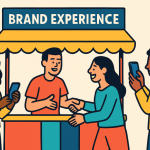Your internet privacy is more exposed than ever in this contemporary age of cyberspace. With every browse on the web, your information leaves a track that can be traced, harvested, and sold. From advertisers bombarding you with targeted online adverts to hackers who wish to exploit your information, web surfing isn’t as discreet as the majority believe. This is where Virtual Private Networks (VPNs) take centre stage. A VPN is perhaps the best means of enhancing security and protecting your sensitive data while on the internet.
Why a VPN Matters in Online Privacy
In the simplest terms, VPN protects your Internet and masks your IP address. Your information is not sent directly to websites; instead, it is routed through an encrypted server, which is practically impossible for anyone to trace your online usage. For whoever cares most about surveillance, censorship, or data collection, VPN is an end-to-end solution. Some of the providers also offer free services such as a free VPN today.
making it easy to protect your anonymity at no cost. They are useful especially for beginners who want to discover ways of protecting their online presence.
Principal Advantages of a VPN
VPNs are now no longer geeks only; they have become an ordinary utility for everyone who cares about online freedom and security. The main advantages are:
- Anonymity browsing – A VPN hides your IP address, and it’s difficult for websites, internet service providers (ISPs), or hackers to trace your activity back to you.
- Security when using Public Wi-Fi – When browsing in airport or coffee shop Wi-Fi, your data is in its most vulnerable state. A VPN keeps your data safe from potential cyber attacks.
- Access to Blocked Content – Most nations block websites, social networking sites, or audio and video streaming. VPNs enable users to bypass such barriers and navigate the internet without a hitch.
- Safe Online Transactions – If you buy things online or do your online banking, then VPN encryption provides that extra security against cyber-gangs trying to steal personal data.
VPNs in Day-to-Day Situations
It’s simple to think that only IT specialists, activists, or journalists require VPNs. Actually, nearly any user can use a VPN. Some real-life examples:
- Remote Work: Due to more remote work, companies must secure sensitive information. VPNs secure employee-to-company-server connections.
- International Travel: Visitors tend to have limited access to their favorite platforms or applications. A VPN enables them to stay connected as if they were home.
- General Surfing: Even simple things like browsing news or accessing mail are safer when it is being done with the VPN active.
VPNs encrypt information, hence safeguarding ISPs, advertisers, or hackers from eavesdropping.
The Relationship Between VPNs and Cybersecurity
Cybersecurity is not just about protecting the company. Rather, it’s about protecting the people. Phishing scams, malware, and identity theft often start with weak links. VPNs are a first line of defense against intercepted personal data, such as login credentials, addresses, and bank information.
Whereas VPNs can’t completely prevent any cyber threats (e.g., opening infected files), they significantly lower the risks by making them much more difficult to intercept. With other cybersecurity options available—such as having strong passwords, having two-factor authentication enabled, and using software updates—VPNs offer end-to-end encryption on the internet.
Choosing the Best VPN
With all the VPNs out there, selecting the best one can be overwhelming. Keep the following tips in mind:
- Search For Secure Encryption: AES-256 encryption is the optimal choice for data protection.
- Check The Privacy Policy: A good VPN service will not sell and log your internet-browsing data.
- Search For Server Locations: More global server locations, the better for web-surfing convenience.
- Measuring Speed and Stability: As encryption does slow down speed, select a vendor providing fast and stable servers.
- Paid vs. Free: Although a free VPN is a good starting point, paid VPNs provide superior features, improved speeds, and better protection.
Restrictions of VPNs
It should be kept in mind, however, that VPNs are not a silver bullet. VPNs enhance privacy but won’t make you invisible on the internet. For instance, websites where you log in with private accounts (e.g., social media or email) can still track activity. Similarly, VPNs are powerless against viruses or rude internet behavior like opening suspicious links. That is why you must use VPNs along with other types of cybersecurity.
Final Thoughts
In an era where online surveillance and cyber threats are growing, protecting your privacy should be a priority. VPNs are an accessible, practical, and powerful way to ensure that your data stays secure. Whether you’re working remotely, traveling abroad, or simply browsing at home, a VPN provides the privacy and peace of mind every internet user deserves.
With so many alternatives to choose from, including good free VPN services, there is no justification for not having your online anonymity compromised. With the right service and combined with good digital manners, you are safe surfing the internet in the comfort of mind that your own data is protected from unwanted eavesdropping.






